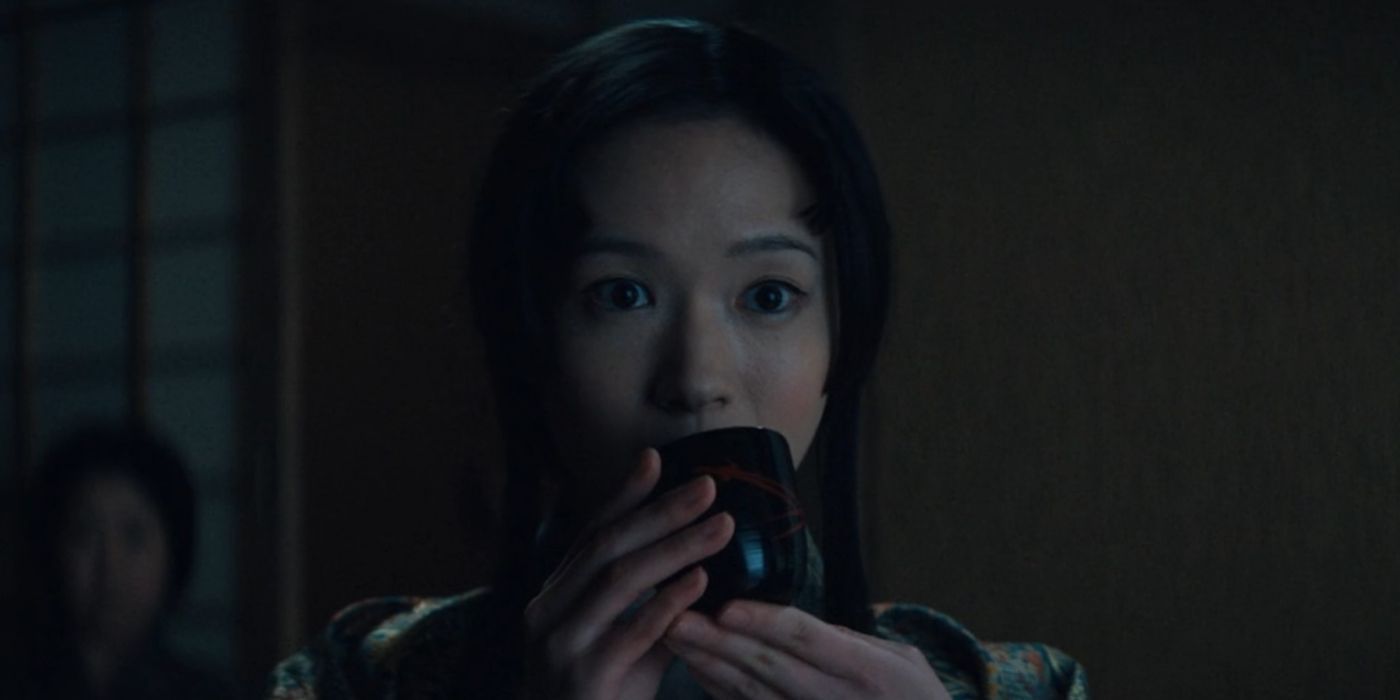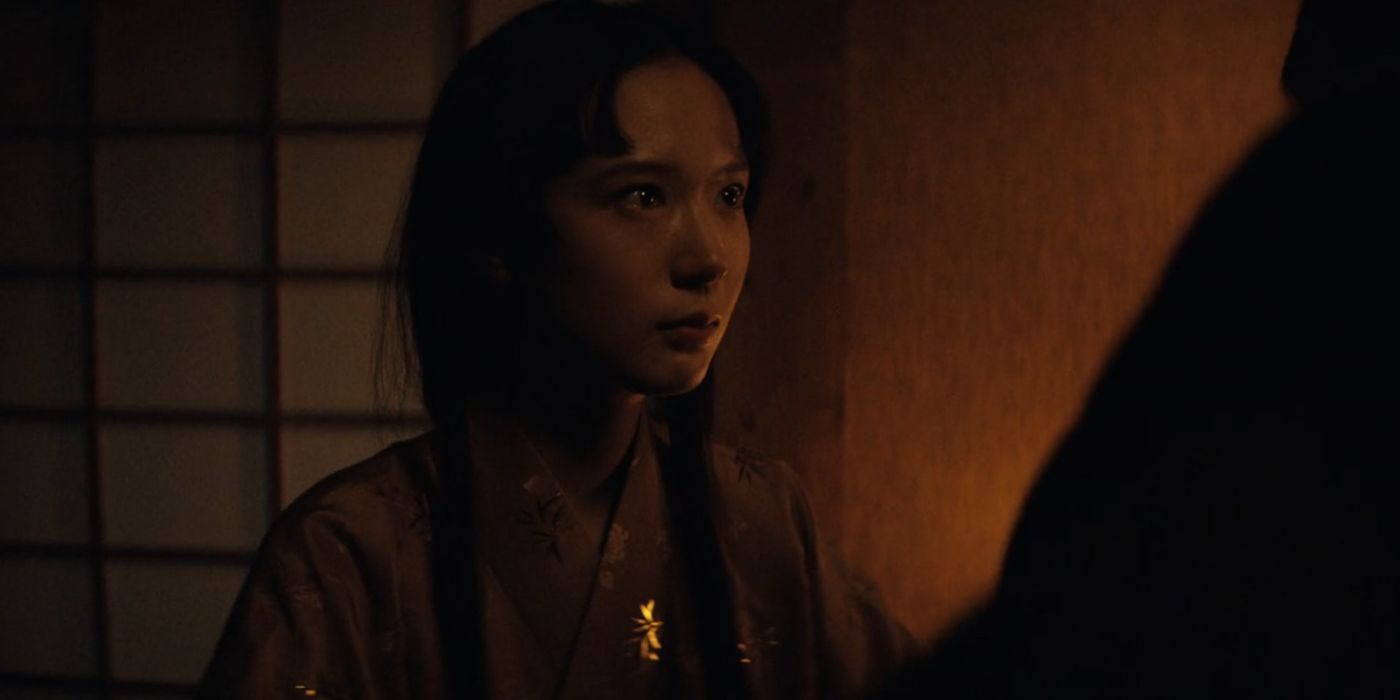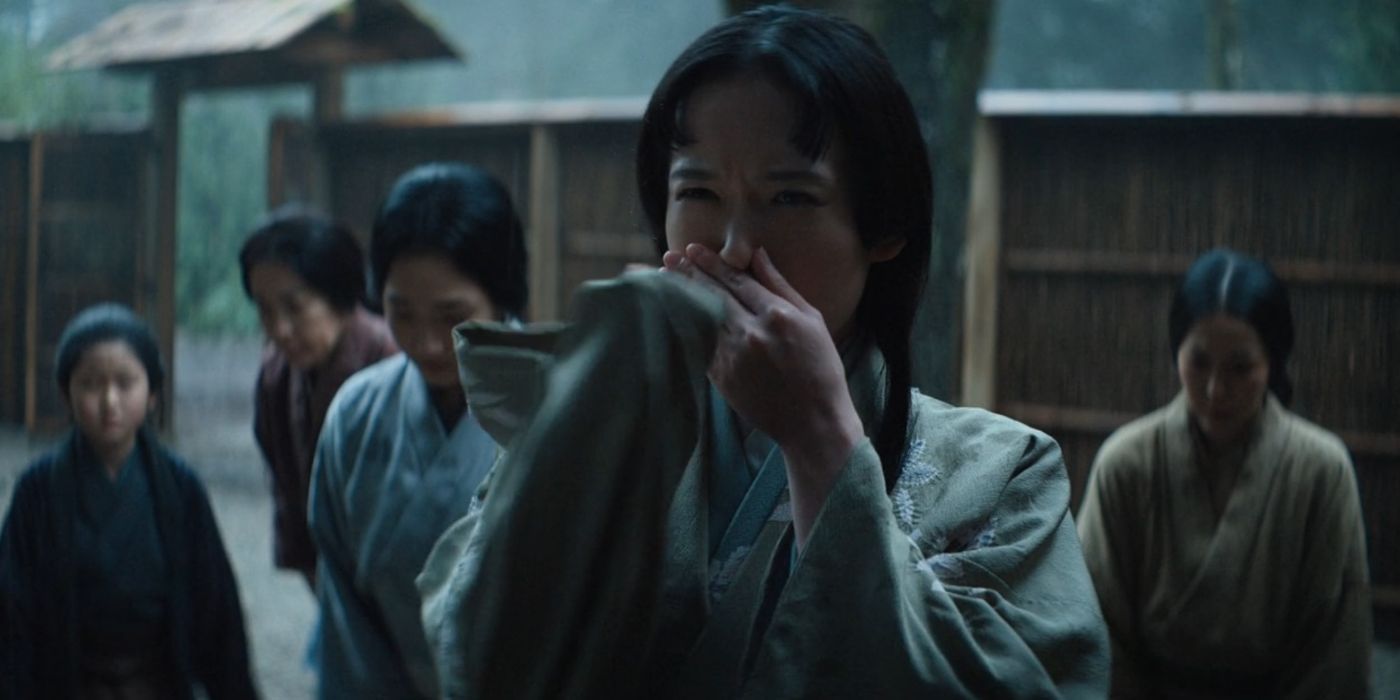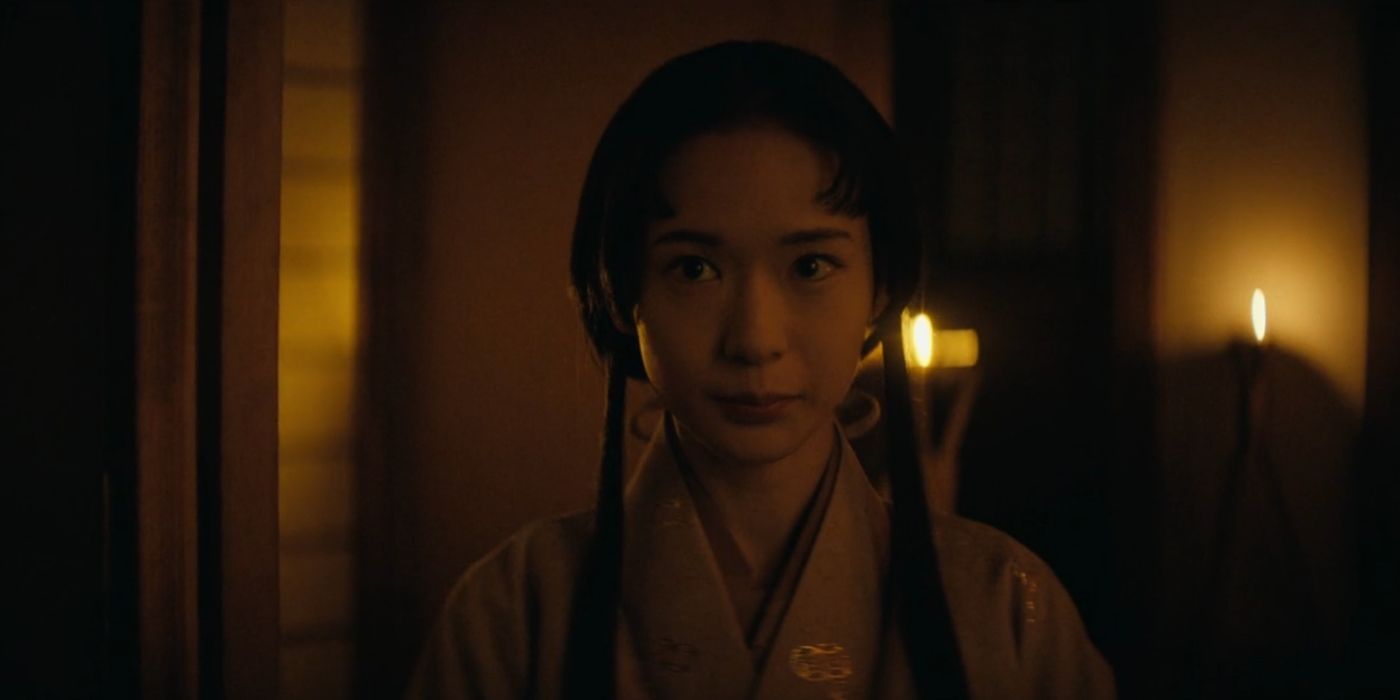Even if she’s not a samurai, this fan-favorite character can steal a scene with just a look.
FX’s Shōgun has been an enthralling television event that has truly excelled at every level of production. But even with its breathtaking scenery and captivating political machinations, the show’s success is founded on its stellar characters. Based on real-life historical figures and portrayed by supremely talented actors, the complex and unique characters in Shōgun have been the highlight. Legendary actor Hiroyuki Sanada makes for a commanding presence as the cunning Lord Toranaga, and Fumi Nikaido is utterly fearsome as Lady Ochiba. The tense relationship between rogue English pilot-turned-hatamoto, John Blackthorne (Cosmo Jarvis) and loyal translator, Toda Mariko (Anna Sawai), has only gotten more exciting and enthralling with each episode.
However, even among an ensemble of proud samurai and powerful political figures, the best character may well just be the most understated of them all. Usami Fuji (Moeka Hoshi) is introduced through tragedy and seemingly trapped in a life she did not choose. Not one to be defined by her loss, Fuji swiftly establishes herself as the most likable character in Shōgun through Hoshi’s effortlessly endearing performance and the compelling narrative arc that she undergoes to overcome her immense heartbreak.
Fuji Symbolizes the Importance of Duty and Sacrifice on ‘Shōgun’
Usami Fuji is the favorite granddaughter of Toda Hiromatsu (Tokuma NIshioka), one of the most loyal and enduring allies of Lord Toranaga. Her powerful connections, however, couldn’t spare her from tragedy as her character suffers through one of Shōgun‘s most heartbreaking introductions. After speaking out of turn at a meeting of the Council of Regents, Fuji’s husband Usami Tadayoshi (Yuki Takao) commits seppuku, ending his life as well as that of their only son. Though this moment is utterly heartbreaking, it serves as an important foundational event. Through Tadayoshi’s sacrifice and Fuji’s grief, several things are made clear: the stakes in this political conflict are immense, maintaining respect and tradition are paramount, and losses must be overcome for Toranaga to preserve peace. Fuji’s introduction as a widow yearning for death while forced to continue living establishes the heavy weight and importance of feudal Japan’s cultural practices, but also sets up her future growth and interesting dynamics with other characters.
Fuji’s dear friend Mariko is first introduced as helping the new widow navigate the conflict between her mourning and continued responsibilities as a vassal to Lord Toranaga. With a life similarly full of loss and tragedy, Mariko becomes one of the most important friendships in Fuji’s life. The two women both illustrate the same important thematic elements, as they must continue fighting in unconventional ways to honor their lost loved ones and carry on their legacy with pride. Not defined by her limitations, but instead excelling despite them, Fuji establishes herself as a resilient individual capable of leaving an indelible mark on the series, just like the other powerful women in Shōgun.
Moeka Hoshi Gives an Understated but Expressive Performance on ‘Shōgun’




Even amid a cast of utterly stellar performers, Moeka Hoshi is a genuine scene stealer with her portrayal of Fuji. But because she is neither a regent Lord, nor a Portuguese speaker, she has far less screentime and dialogue than other prominent characters. However, that doesn’t diminish Fuji’s character in the slightest, as it’s actually through this limitation that Hoshi shines as an actor. The key to Hoshi’s compelling performance as Fuji is her vivid expressiveness, even without dialogue, which makes her character exceptionally endearing and relatable through even the most subtle actions. Similar to another fan-favorite character, Yabushige (Tadanobu Asano), Fuji’s feelings are clearly conveyed through her body language and facial expressions. However, while Yabushige is played with a more boisterous and in-your-face physicality, Fuji is a far more understated character, whose moods are expressed more discreetly.
In one scene she might be more open and use the universal symbol for “stinky” while trying to speak to Blackthorne, and in another, she might take a far more furtive approach and simply share a knowing glance from behind a teacup. The simplicity and charm of Hoshi’s performance make her character the highlight of each scene she’s in, capable of capturing the spotlight with even just a subtle movement. Moeka Hoshi has been giving a masterclass on how to act without speaking, conveying myriad emotions and thoughts through her eyes and expressions alone. Without dialogue, or even drawing additional attention to herself, Hoshi is capable of conveying an impressive range of thoughts, ideas, and feelings. From playful slyness to overwhelming grief, from shocked disgust to resilient stoicism, Fuji is one of Shōgun‘s most emotionally versatile characters.
Fuji Has a Compelling Character Arc on ‘Shōgun’

While Fuji’s expressive reactions to the other characters are a major reason she’s such an endearing character, she also boasts one of the best narrative arcs. Though her status as a side character initially seems like a hindrance to her potential narrative growth, her condensed screentime actually makes her evolution even more potent. Again surpassing the limitations of her social position, Fuji experiences tremendous change and development from when she is first introduced. First seen as an innocent bystander, helpless in stopping her husband’s death, Fuji first hits a genuine low as she yearns for death, so she can follow her family. However, she is forced to continue living and is reluctantly resigned to fulfilling her duties out of loyalty, eventually becoming consort to the newly promoted hatamoto, John Blackthorne.
But it’s through this unexpected situation and unlikely relationship that Fuji begins to truly shine, continuing to perform her duties despite her immense losses and embodying the importance of continued loyalty. As she learns more about Blackthorne, the two develop respect for one another which is solidified when Fuji comes to his aid in a tense situation. When Omi (Hiroto Kanai) threatens to take Blackthorne’s firearms, it is Fuji who calms the English pilot down before they come to blows. From meek bystander to the fiercest woman in all of Japan, Fuji fully demonstrates her individual strength and tenacity in this one scene as she points the flintlock at Omi, embodying all the best traits of honor, loyalty, and duty that not many can compare to.
While her story hasn’t been fully told, Fuji has nonetheless had one of the most interesting arcs in Shōgun thus far. However, as things begin to look even more dire for Lord Toranaga, Fuji is once again proving that she is a dynamic character not destined for a life in the background. Practicing her weapon training in preparation for war and the defense of her home, Fuji continues to defy expectations and invite intrigue as the most likable character in the show. Though the future of feudal Japan is still a mystery, one can only hope that the honorable forces in search of peace can find a path to victory.





